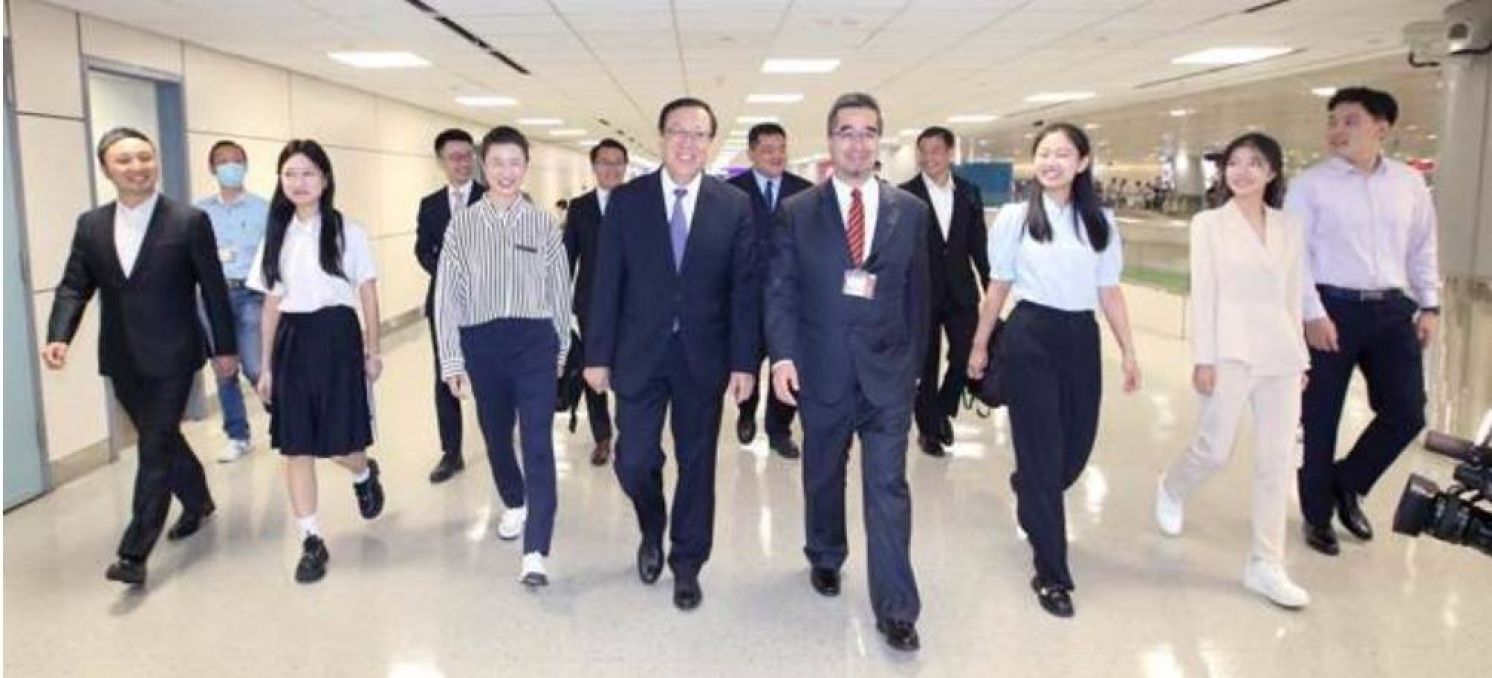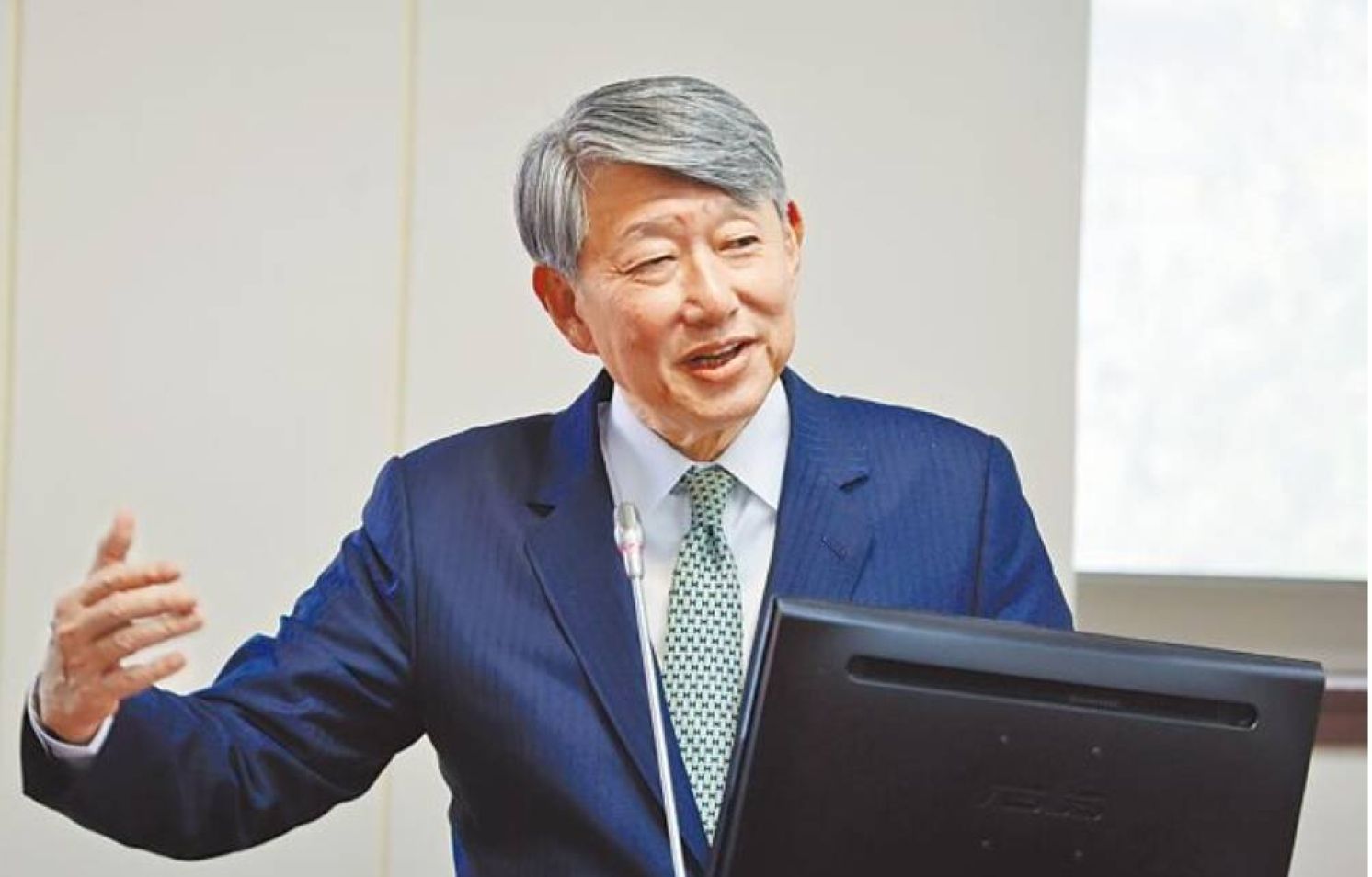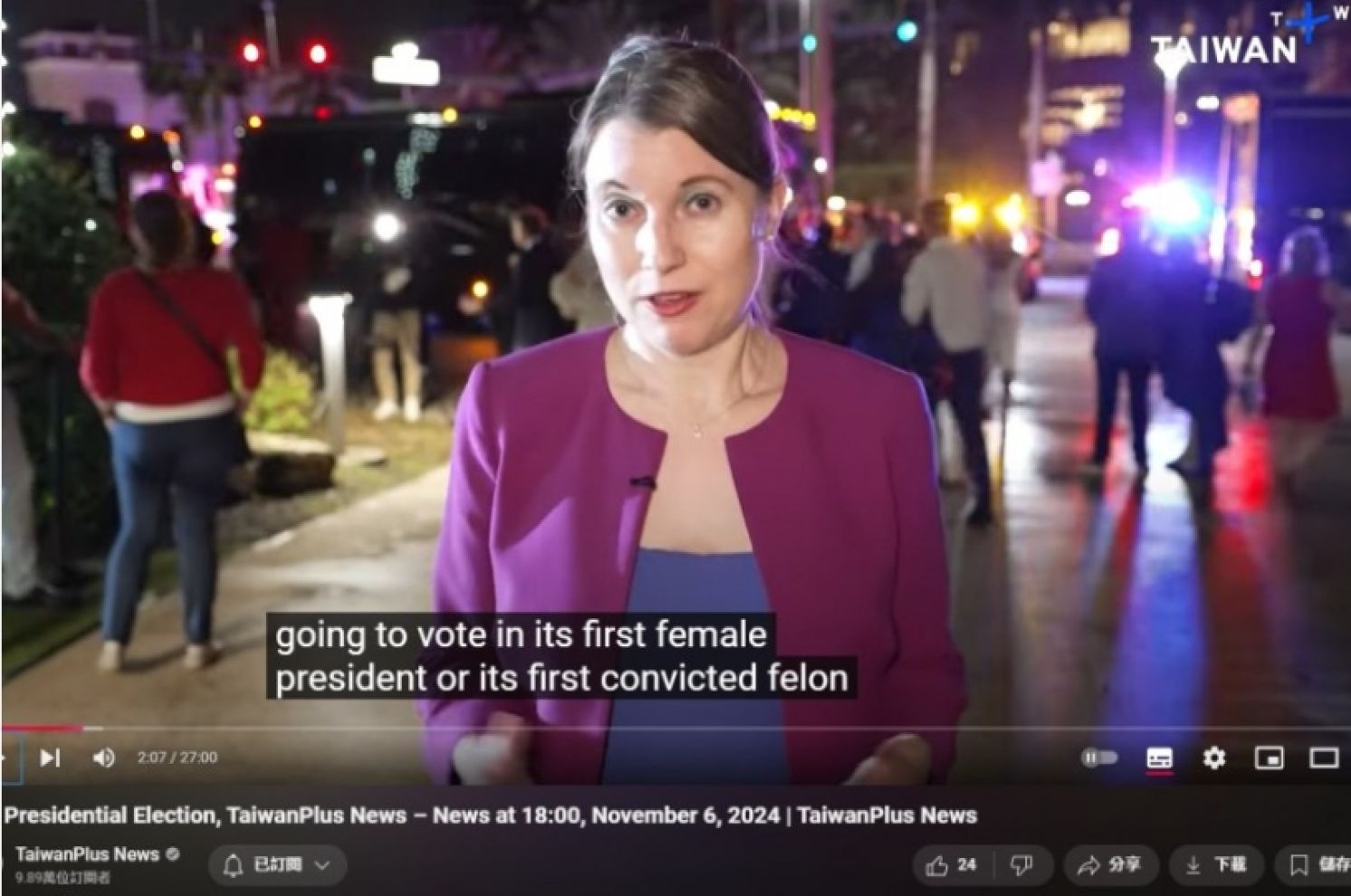Published since 2019 by the Fair Winds Foundation and Association of Foreign Relations, Taiwan Weekly provides in-depth report and analysis of the major issues facing Taiwan.

Mainland Chinese Student Delegation Not United Force Campaign: Restore Goodwill in the Taiwan Strait
A group of 40 mainland Chinese students and teachers, invited by the Ma Ying-jeou Foundation, arrived in Taiwan. Before their departure, anonymous officials leaked their names and positions to specific media, claiming that all members were selected by Communist China and included Communist Youth League members, reserve party members, or party members. They even noted that Olympic table tennis champion Ma Long was among Communist Party members. Some pro-DPP scholars labeled the visit as propaganda and unification efforts. This visit, which initially went smoothly compared to last year's, was marred by political maneuvering before departure, which is both regrettable and worrying.
Details
President Lai's Visit, PLA Exercise, and Is Trump Reliable?
President Lai Ching-te's upcoming visit to Pacific allies is stirring concerns, with national security officials hinting through Reuters that China may use Lai’s visit and transit through the United States as a pretext for conducting the "Joint Sword-2024C" military exercises near Taiwan. Officials suggest that China may use these drills to test the limits of the incoming Donald Trump administration's stance.
Details
Minister Kuo's Plan to Move Factories to the U.S. Won't Escape Tariff War
U.S. President-elect Donald Trump has made bold statements, pledging to impose a 10 percent tariff on China and 25 percent on Canada and Mexico once in office, leaving many stunned. Taiwan already has a $47.7 billion trade surplus with the United States through September this year, making it difficult to avoid high tariffs. However, the economic strategy proposed by Minister of Economic Affairs JW Kuo in response to Taiwan’s trade challenges raises concerns.
Details
President Lai's Approval Rating Plummets with a "Death Cross": Expert Reveals Five Critical Factors﹐Trouble from Within
President Lai Ching-te's approval rating has sharply dropped, with a "death cross" between supporters and opponents. A recent poll by the Taiwan Public Opinion Foundation (TPOF) revealed that President Lai's approval has significantly fallen, with approval and disapproval rates now nearly equal. TPOF Chairman You Ying-lung identified five major reasons behind this decline, citing internal issues as a key factor.
Details
Avoiding Transit through the Continental U.S.: Option Palatable to U.S., China, and Taiwan
President William Lai, scheduled to visit Taiwan’s Pacific allies on November 30, may transit through either Hawaii or Guam. This transit option, amid the intricate international situations, appears to offer an acceptable way out to the United States, China, and Taiwan.
Details
Government Takes Lead with "Spoiled Bosses": Workplace MeToo Movement Anger Spreads
The death of a public servant at the Ministry of Labor (MOL) has shattered the facade of “Happy Taiwan,” exposing deeply ingrained “workplace bullying.” On November 20, a note reading, “I am a public servant; I just want to live well,” was placed at the Ministry’s entrance. Despite apologies from President Lai Ching-te and Premier Cho Jung-tai, as well as the verbal resignation of Minister of Labor Ho Pei-shan, public outrage continued to surge. A "well-intentioned" investigation report from the Ministry of Labor, coupled with a lawyer’s statement from Hsieh Yi-jung, head of the northern Taiwan regional branch of the Workforce Development Agency, MOL, only exacerbated the situation, pouring fuel on an already raging fire.
Details
Trump’s Anti-China Stance Not Necessarily Friendly to Taiwan: Lai Administration Must Not Misjudge
The global impact of President-elect Donald Trump’s return to the White House undeniable, with Taiwan’s national security officials rushing to signal allegiance through foreign media, offering NT$500 billion (about US$15.4 billion) for military purchases and emphasizing that Mr. Trump’s national security team is composed of “anti-China, pro-Taiwan” hawks who will not betray Taiwan. However, such shallow and reactive responses only highlight the Democratic Progressive Party’s (DPP) usual tendency to self-deceive and cover up the realities of the situation.
Details
Elon Musk Whom the DPP Neglected
The core members of the Trump administration's national security team are mainly nominated. Taiwan’s ruling Democratic Progressive Party (DPP) seems feeling relieved by this line-up full of hawkish and anti-China tone and sentiment, mesmerizing itself by the fact that "the relationship between the United States and Taiwan is as good as it has been."
Details
"Serving the Party"﹐ National Media Self-Degenerating?
The international video streaming platform Taiwan Plus (Taiwan+), established by the Democratic Progressive Party (DPP) administration, was transferred to the Public Television Service (PTS), the state media funded by taxpayers’ money, due to poor management after burning through NT$5.8 billion (about US$178 million) over four years. Former President Tsai Ing-wen once likened it to the United Kingdom's BBC and Japan's NHK, aiming to showcase Taiwan to the world. However, on its official website, a feature on "Taiwan's Anti-Corruption Efforts" used an image of Chairman Ko Wen-je of the Taiwan People's Party (TPP) Chairman wearing handcuffs, and it claimed to the world that the new U.S. President Donald Trump was "a convicted felon." As a national media outlet, it should maintain neutrality and serve as an exemplary for all media, yet it has degraded itself into being a tool for partisan agendas.
Details
This Week in Taiwan 1110-1116
November 10: CNN reported that on November 7, during a dinner with Taiwan's representative to the United States Ambassador Alexander Yui, former White House National Security Advisor Robert O'Brien received a congratulatory letter from the Taiwan government, which he then passed on to President-elect Donald Trump's team. The report noted that this low-key congratulatory letter contrasts sharply with the controversial Trump-Tsai phone call in 2016. Both the Taipei Economic and Cultural Representative in the United States and O'Brien declined to comment.
Details- 1
- 2
- 3
- 4
- 5
- 6
- 7
- 8
- 9
- 10
- 11
- 12
- 13
- 14
- 15
- 16
- 17
- 18
- 19
- 20
- 21
- 22
- 23
- 24
- 25
- 26
- 27
- 28
- 29
- 30
- 31
- 32
- 33
- 34
- 35
- 36
- 37
- 38
- 39
- 40
- 41
- 42
- 43
- 44
- 45
- 46
- 47
- 48
- 49
- 50
- 51
- 52
- 53
- 54
- 55
- 56
- 57
- 58
- 59
- 60
- 61
- 62
- 63
- 64
- 65
- 66
- 67
- 68
- 69
- 70
- 71
- 72
- 73
- 74
- 75
- 76
- 77
- 78
- 79
- 80
- 81
- 82
- 83
- 84
- 85
- 86
- 87
- 88
- 89
- 90
- 91
- 92
- 93
- 94
- 95
- 96
- 97
- 98
- 99
- 100
- 101
- 102
- 103
- 104
- 105
- 106
- 107
- 108
- 109
- 110
- 111
- 112
- 113
- 114
- 115